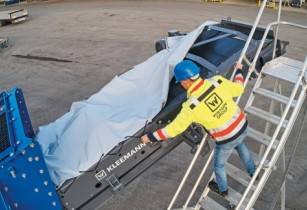Abu Dhabi Future Energy Company (Masdar) has announced that the financing of the largest solar power plant in the Hashemite Kingdom of Jordan has been completed
The financing for the 200MW Baynouna solar energy project, to be built 10km outside of the capital Amman, was formalised at a signing ceremony between Baynouna Solar Energy Company (BSEC) and the International Finance Corporation (IFC). BSEC is a joint-venture between Masdar and Taaleri.
?The Baynouna project is helping to deliver on His Majesty King Abdullah II?s vision for a diversified energy mix and progressing the national agenda for energy security and sustainability, and is a result of the cooperation agreements signed between the Jordanian government and Abu Dhabi government represented by Masdar,? commented Dr Saleh Kharabsheh, minister of energy in Jordan.
The financing of the project was managed by IFC which invested part of its own capital while securing funds from Japan International Cooperation Agency, the Dutch Development Bank FMO, Europe Arab Bank, OPEC Fund for International Development (OFID) and German development bank DEG.
To be completed in Q2 2020, the Baynouna solar energy project is set to supply approximately 110,000 homes while displacing an estimated 360,000 tonnes of carbon dioxide annually.
Generating 563.3 GWh of electricity per year, the project is expected to meet three per cent of Jordan?s annual power consumption. It is also considered to reduce dependence on fossil fuel imports, which currently supply 96 per cent of the country?s energy needs.
Baynouna is Masdar?s second major renewable energy project in Jordan after the 117MW Tafila wind farm that was inaugurated in December 2015. Together, Baynouna and Tafila are thought to contribute around 18 per cent of the 1.8 GW of renewable energy capacity Jordan plans to install by 2020.



























